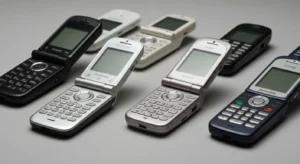Which Mobile is Best for Business Purposes? Your Ultimate 2025 Guide

Image source: Pexels
In the relentless rhythm of modern commerce, your mobile device is more than just a gadget; it's your indispensable command center. Seamlessly bridging communication gaps, granting instant data access, and orchestrating client interactions, it's the engine powering your day-to-day operations. But with a constant deluge of new models flooding the market, discerning which mobile is best for business purposes can feel like navigating a labyrinth. Fear not. This comprehensive 2025 guide is your compass, designed to cut through the clutter and empower you with the insights needed to select the perfect device. We'll delve into key considerations like unparalleled productivity features, robust security protocols, and essential integrations that will elevate your business performance.
Understanding Your Business Needs: The Foundation of Your Choice
Choosing the right device is a critical strategic decision. The answer to “which mobile is best for business purposes?” isn't found in a single product review but in a thorough analysis of your unique operational demands. A phone that empowers one team could hinder another, making an internal audit the essential first step.
Define Your Business Type and Industry
Your industry dictates core functional requirements. A healthcare provider needs HIPAA-compliant communication apps and secure data handling, while a logistics company requires GPS accuracy and rugged hardware for field use. Creatives, on the other hand, will prioritize screen quality and color accuracy for content review.
| Industry Vertical | Primary Mobile Requirement | Relevant Device Feature |
|---|---|---|
| Logistics/Field Service | Durability & Long Battery Life | IP68 rating, large battery capacity |
| Healthcare | Security & Data Privacy | Biometric authentication, encrypted OS |
| Creative & Marketing | High-Fidelity Display & Camera | High-res LTPO OLED display (e.g., Pixel 9 Pro) |
| Project Management | Documentation & Multitasking | Advanced camera systems (e.g., Galaxy S25 Ultra) |
Assess Your Daily Workflow and Key Tasks
Analyze your team's mobile device usage patterns. Are they primarily for communication, or do they involve intensive data entry, mobile payments, or on-site project documentation? A sales representative constantly on calls might value a compact, powerful device like the projected Google Pixel 9 Pro. In contrast, an architect documenting construction progress would benefit from the powerhouse camera system of a device like the anticipated Galaxy S25 Ultra.
Balance Cost and Capability with Budgetary Considerations
Look beyond the sticker price and consider the Total Cost of Ownership (TCO). This includes the initial purchase, software licenses, support, and potential repair costs.
A lower upfront price can be deceptive. A device with a shorter security support window may become a liability, costing more in the long run through data breach risks or forced early replacement.
Prioritize Security and Data Protection
For any business, security is paramount. Prioritize devices with secure operating systems, robust hardware-level encryption, and a commitment to regular security patch updates. Crucially, ensure the devices are compatible with Mobile Device Management (MDM) solutions. This allows your IT department to enforce security policies, remotely locate, and wipe a device if it's lost or stolen, safeguarding sensitive corporate data.
Essential Features for a Business Smartphone
When asking, “which mobile is best for business purposes?” the answer lies in evaluating a device's core functionalities against your specific needs. Prioritizing the right features ensures your team remains productive, connected, and efficient, whether in the office or in the field.
Performance and Processing Power for Demanding Apps
A business phone must be a productivity powerhouse. This requires a processor capable of seamless multi-tasking and ensuring high app responsiveness for CRM, project management, and communication tools. Lag or slow performance can directly impact workflow. Flagship devices expected in 2025, such as the iPhone 16 Pro and Samsung Galaxy S25, are anticipated to lead in this area.
| Feature Comparison | Expected iPhone 16 Pro | Expected Samsung Galaxy S25 |
|---|---|---|
| Processor | Next-gen A-series chip | Next-gen Snapdragon/Exynos |
| RAM | High-performance | High-performance |
| Best For | Seamless ecosystem integration | Android flexibility & customization |
All-Day Battery Life to Stay Connected
For a mobile professional, a dead battery means a halt in productivity. A key feature is reliable all-day usage on a single charge. Look for devices with large battery capacities, optimized software, and essential features like fast charging and intelligent power-saving modes to keep your team operational through long workdays.
Display Quality and Durability for Readability and Resilience
A phone's display is the primary interface for all business tasks. Prioritize a generous screen size and high resolution for comfortable document viewing. Excellent outdoor visibility is crucial for field workers, while enhanced ruggedness, like Gorilla Glass or Ceramic Shield, protects the investment against accidental drops.
Advanced Camera Capabilities for Documentation and Communication
Modern business phones use cameras for more than photos. High-resolution sensors are vital for clear video conferencing, while advanced video recording can be used for training or marketing content. Critically, superior scanning capabilities allow for the quick digitization of documents, receipts, and business cards, streamlining administrative tasks.
Comprehensive Connectivity Options
Uninterrupted connectivity is non-negotiable. Modern business devices must have robust options:
- 5G support for the fastest possible data speeds on the move.
- Reliable Wi-Fi (Wi-Fi 6/6E or newer) for stable office connections.
- NFC for contactless payments and data transfer.
- The latest Bluetooth for connecting to headsets, keyboards, and other peripherals.
Ultimately, the best business mobile is one that balances these high-performance features with the specific demands of your industry and workforce.
Operating Systems: Choosing Between iOS and Android for Business
Choosing a mobile operating system is a foundational decision for any organization. The debate over iOS and Android extends into the corporate world, where factors like security, management, and cost are paramount. Answering the question, “which mobile is best for business purposes?” requires a careful assessment of your company's specific needs.
The iOS Ecosystem: Simplicity, Security, and Uniformity
Apple's iOS is renowned for its closed ecosystem advantages. By controlling both the hardware (iPhone) and software, Apple provides a highly consistent and user-friendly experience that simplifies IT support and training. Security is a cornerstone, bolstered by strong app store vetting that significantly reduces the risk of malware.
The Android Ecosystem: Customization, Flexibility, and Variety
Android’s greatest strength is its open nature. This fosters immense customization and a wider hardware choice from numerous manufacturers like Samsung and Google. Businesses can select devices tailored to specific roles—from rugged phones for field technicians to cost-effective models for large-scale deployments.
| Feature | iOS (Apple) | Android (Google & Partners) |
|---|---|---|
| Security Model | Closed ecosystem, strict app vetting | Open source, greater user control |
| Hardware Options | Limited to Apple-manufactured devices | Extensive range across multiple brands |
| Customization | Low; uniform user interface | High; customizable by user and OEM |
| Device Management | Excellent, with native integration | Strong, with solutions like Android Enterprise |
Enterprise Mobility Management (EMM) for Both Platforms
Regardless of the OS, managing a fleet of devices is crucial. Both iOS and Android support robust EMM frameworks, allowing IT departments to implement:
- Mobile Device Management (MDM): To enforce security policies and configure devices remotely.
- Mobile Application Management (MAM): To secure corporate apps and data without managing the entire device.
- Mobile Content Management (MCM): To control access to corporate documents and files.
App Availability and Compatibility
Most major business-critical applications, such as Microsoft 365, Slack, and Salesforce, offer full support on both operating systems. However, companies relying on specialized or custom-developed software must verify compatibility as a key checkpoint in their decision-making process.
Top Mobile Devices for Business in 2025: Our Recommendations
Deciding which mobile is best for business purposes in 2025 involves weighing performance, security, and specific role requirements. Our recommendations focus on models that excel in key business areas, from C-suite multitasking to rugged fieldwork.
Best Overall Business Smartphone: The All-Rounder
For the professional who needs a reliable, high-performance device that does everything well, the Apple iPhone 16 Pro or Samsung Galaxy S25 are top contenders. These flagships offer powerful processors, exceptional cameras for document scanning, and all-day battery life. Their deep ecosystem integration—Apple's seamless handoff and Samsung's DeX for a desktop experience—makes them powerful hubs for any workflow.
| Feature | Apple iPhone 16 Pro (Projected) | Samsung Galaxy S25 (Projected) |
|---|---|---|
| Ecosystem | Tight integration with macOS, iOS, iPadOS | Samsung DeX, seamless Windows integration |
| Key Feature | Pro-grade camera system, A-series chip | Advanced AI features, S Pen compatibility |
| Security | Face ID, Secure Enclave | Knox Security, Ultrasonic Fingerprint |
Best for Productivity and Multitasking: The Powerhouse
Power users and executives will benefit from the expansive screen of a foldable like the Samsung Galaxy Z Fold 7. Its tablet-sized inner display is a game-changer for multitasking, allowing users to run multiple apps side-by-side, review spreadsheets, and annotate documents with an S Pen.
Best for Durability and Field Work: The Rugged Companion
For industries like construction and logistics, durability is non-negotiable. The Samsung Galaxy XCover Pro 2 or a device from the Cat S-series is built to withstand harsh environments with features like:
- IP68/IP69K ratings for high-level water and dust resistance.
- MIL-STD-810H certification for protection against drops, shock, and extreme temperatures.
- Programmable buttons for push-to-talk (PTT) functionality.
Best Budget-Friendly Business Mobile: Smart Value
Equipping a large workforce requires balancing cost and capability. The Google Pixel 9a is projected to be an excellent choice, offering essential business features without a premium price tag. It provides a clean, secure Android experience with timely updates, a reliable camera, and solid battery life.
Future-Proofing Your Investment
To ensure a strong return on investment, look beyond today's specs. In 2025, on-device AI will be standard, powering features like real-time meeting summaries. Crucially, prioritize devices with long-term software support—like the 7-year commitments from Google and Samsung—to maximize security and usability over the device's lifespan.
Beyond the Device: Essential Business Accessories and Software
The answer to which mobile is best for business purposes extends beyond hardware. A robust ecosystem of accessories and software is crucial for maximizing productivity and security.
- Protective Cases and Screen Protectors: Equip devices with cases using impact-resistant materials and quality screen protectors to prevent costly damage.
- Portable Chargers and Power Banks: For mobile professionals, high-capacity power solutions (e.g., 20,000mAh) are essential to stay connected all day.
- Bluetooth Headsets and Earbuds: Invest in headsets with active noise cancellation for superior call quality and all-day comfort during remote collaboration.
- Productivity Apps and Cloud Services: Leverage suites like Microsoft 365 or Google Workspace for seamless task management, collaboration, and cloud storage.
- Mobile Device Management (MDM) Software: MDM is critical for managing company-wide deployment, enforcing security policies, and remote wiping of lost devices.
| Feature | Jamf Pro | Microsoft Intune |
|---|---|---|
| Platform Focus | Apple Ecosystem | Cross-Platform |
| Core Strength | Deep Apple Integration | Microsoft 365 Sync |
| Remote Wipe | Yes | Yes |
FAQ (Frequently Asked Questions)
Q1: What is the most important factor when choosing a mobile for business purposes?
A1: The most critical factor is aligning the device's capabilities with your specific business needs and daily workflows. This includes prioritizing security, ensuring compatibility with essential business applications, and considering the durability and battery life required for your team's tasks. Q2: How does the choice between iOS and Android impact business use?
A2: iOS offers a more controlled, secure, and uniform experience, simplifying management and training. Android provides greater hardware variety, customization, and flexibility, often at a wider range of price points. Both platforms support robust enterprise management tools.
Q3: Are foldable phones a viable option for business use in 2025?
A3: Yes, foldable phones like the Samsung Galaxy Z Fold series are becoming increasingly viable for business. Their larger, tablet-like displays offer significant advantages for multitasking, document review, and productivity-focused tasks, especially for professionals who need a portable workstation.
Q4: How can I ensure my business mobile investment is future-proof?
A4: To future-proof your investment, prioritize devices with long-term software and security update commitments (e.g., 7 years), robust hardware that can handle evolving app demands, and compatibility with emerging technologies like advanced AI features and faster connectivity standards.
خاتمة
Ultimately, answering the question, “which mobile is best for business purposes?” is not about finding a one-size-fits-all device. It's about making a strategic decision that empowers your organization. This choice is a culmination of a thorough assessment of your business needs, the prioritization of non-negotiable features like security, and a clear understanding of the top devices and ecosystems available. This isn't just a technology upgrade; it's a direct investment in your operational efficiency, team productivity, and overall bottom line. The best business mobile is the one that acts as a natural extension of your workflow, fortifies your sensitive data, and reliably supports your team day in and day out. By applying the framework from this guide, you can select a solution that not only meets your current demands but also future-proofs your mobile strategy. Ready to equip your team for peak performance? Start by conducting a thorough needs assessment within your organization. Compare your findings against the recommended devices and features in this guide. Contact your IT provider or a mobile solutions specialist today to discuss tailored options for your business and secure the devices that will drive your success in 2025 and beyond.








